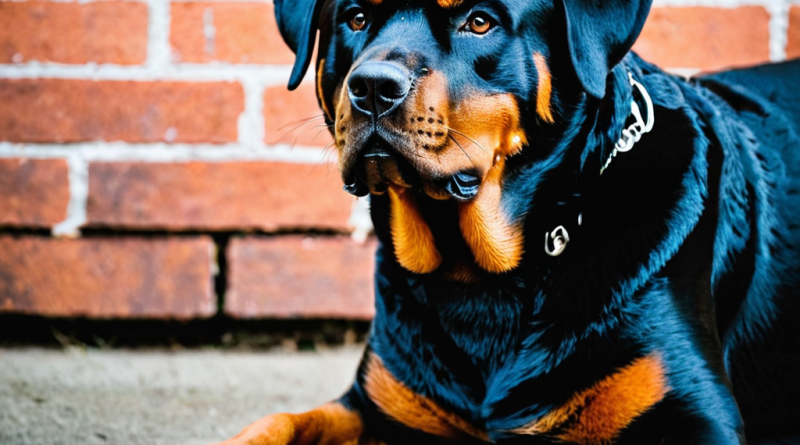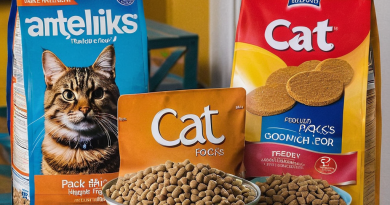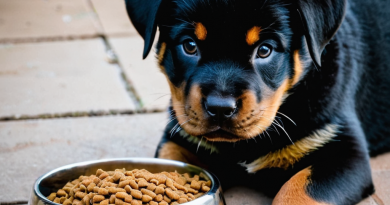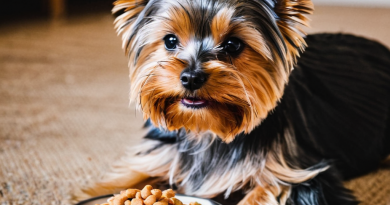Ultimate Rottweiler Nutrition Guide: Puppies to Adults
Rottweilers are powerful, loyal companions with specific dietary requirements that change as they grow. If you've just welcomed a Rottweiler puppy into your home or are curious about the best nutrition for your adult Rottie, you're in the right place. Here’s your ultimate guide to Rottweiler nutrition, brought to you by the team at Petsfi.
Nutritional Needs from Puppyhood
Just like a newborn, a Rottweiler pup needs a specialized diet rich in vital vitamins and minerals. Their nutritional requirements differ significantly from adults, and it's crucial to feed them with a formula designed specifically for their developmental needs. As they grow, Rottweilers require plenty of animal proteins and crude fats to support tissue repair and growth, as they can pack on about two pounds a week during their puppy stage!
Puppy Feeding Guidelines
From birth to two years, your Rottweiler is still considered a puppy. You ought to start with a high-quality puppy formula and keep them on it until at least one year old. Some may need it longer, especially if they’re a bit behind on the size curve.
Young pups have smaller stomachs and can't handle large meals even if they're bursting with energy. Small, frequent meals help them maintain their zest throughout the day. By eight weeks old, your Rottie should transition to dry kibble—essential for dental health and easing digestion. If you need to switch brands, take it slow. Mix the new food with the old to prevent any tummy troubles.
Choosing the Right Food
When selecting puppy kibble, keep an eye out for crucial ingredients: DHA for brain development, correct proportions of protein and fats, ample calcium for strong bones, and iron for proper blood circulation. A good dog food also includes probiotics to support their sensitive digestive systems.
Feeding Schedules and Portion Control
Feeding your Rottweiler on a regular schedule isn't just about discipline; it's essential for their growth and development. Just like us, they thrive on routine. Plan their meals around their daily cycle of play, work, and rest to steady their metabolism and align with their potty breaks.
While every pup is different in terms of appetite, dog food brands typically offer a guideline based on weight. Adapt as needed, feeding enough to sustain their rapid growth without overdoing it.
Adult Rottweiler Nutrition
As your Rottweiler reaches adulthood, their dietary needs level out, but the focus on quality remains. At this stage, your Rottie’s diet should still be rich in proteins and fats, but with moderated calories to prevent obesity—a common health issue in larger breeds.
Portion sizes will increase with your dog’s size, but you should also consider their activity level. A more active Rottie may need extra food to compensate for the energy they expend.
Treats and Training
Treats are an excellent reinforcement tool during training, but moderation is key. Ensure that treats don't exceed 10% of your dog’s total caloric intake. Use high-quality treats without artificial additives to keep it healthy and rewarding.
Hydration is Key
Never underestimate the power of water. Offer your Rottie an abundant supply of clean, fresh water. Hydration aids their digestion, regulates body temperature, and can even soothe an upset stomach.
Final Pro Tip
If there's something you're not sure about, don't shy away from asking for help. Connect with fellow pet owners, tap into reputable pet groups, and share your experiences. Community resources are a treasure trove of information, so take advantage!
Remember, whether you're raising a spirited pup or caring for a regal adult Rottweiler, it's their health, not their size, that truly matters. Keep these tips in mind, and your Rottweiler will be on the path to a happy, healthy life!
Follow the Petsfi blog for more interesting and informative posts about your furry friends!




